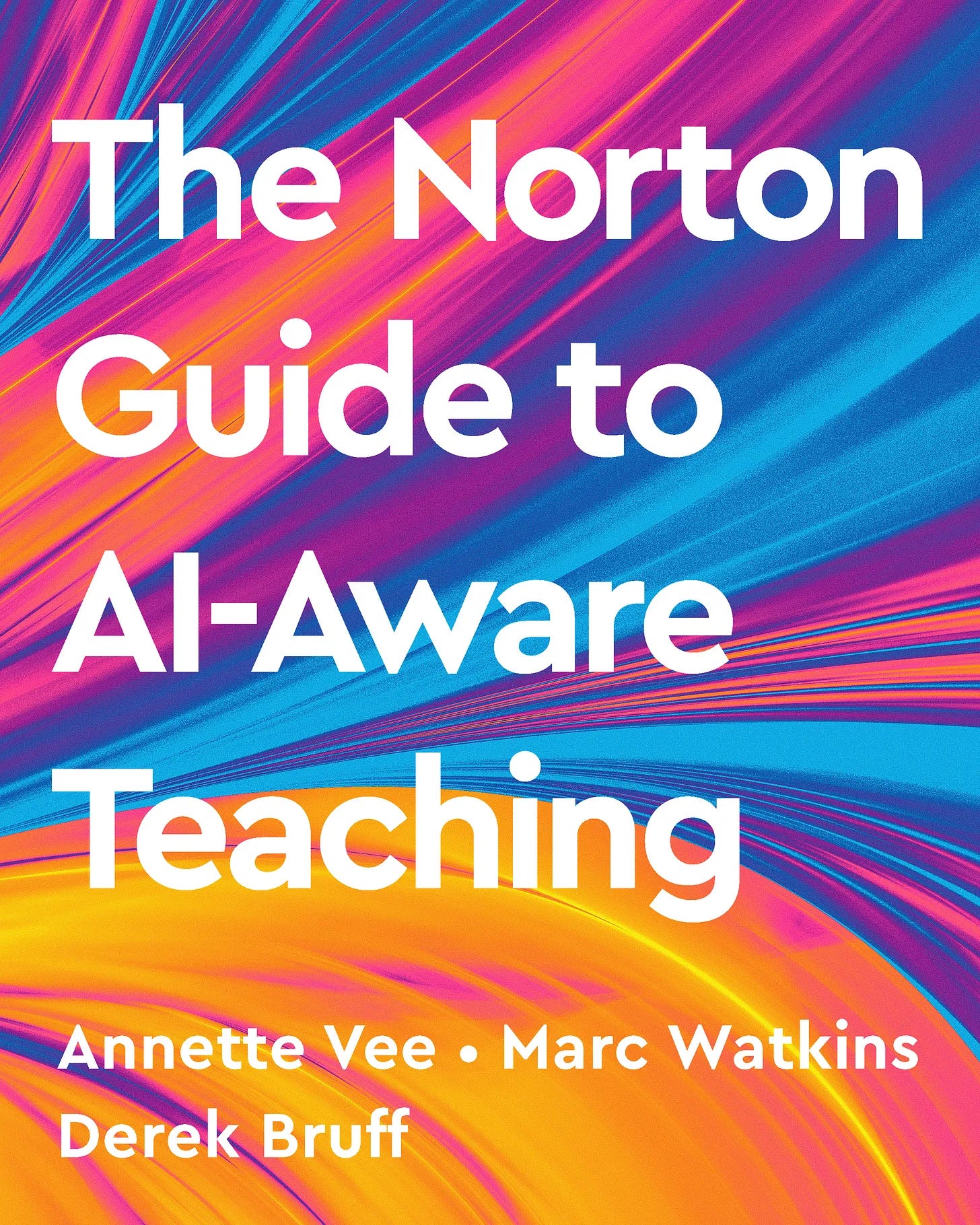I’m cowriting an AI teaching guide with Norton!
Coming Summer 2026!
There are a ton of guides out there on teaching that address AI. My favorites include: Teaching with AI (Bowen and Watson); Teaching Effectively with ChatGPT (Levy and Pérez Albertos); AI Minimalism (Cryer); Refusing GenAI in Writing Studies (Sano-Franchini, McIntyre, Fernandes); and The Opposite of Cheating: Teaching for Integrity in the Age of AI (Bertram Gallant and Rettinger).
So, when Erica Wnek, the brilliant editor I’ve been working with on the AI & How We Teach Substack asked me about writing a guide for W. W. Norton on AI, I thought: why? What could I possibly contribute to this increasingly crowded space?
But then we talked more about what I might be able to say. Much of the guidance out now is with or against AI, and I tend to offer pragmatic advice answering: now what? Norton’s network includes teachers who aren’t following AI discourse all day long and might appreciate that now what? approach. More importantly, we talked about what it might look like to co-author a guide with other thoughtful teachers, which was exciting to me.
So, I’m happy to announce that I’m co-authoring The Norton Guide to AI-Aware Teaching with Marc Watkins and Derek Bruff, two teachers whose writing on AI I admire a lot. I also get to continue working with Erica and now with Betsy Twitchell at Norton as well. I can’t say enough good things about W. W. Norton & Company, Inc. and how nice it is to work with professional editors at an independent publisher.
The guide is meant to be cross-disciplinary, attentive to different modes of teaching, and flexible enough to accommodate different approaches to AI in courses. Our goal is to help empower instructors to make good decisions about their teaching, given the ubiquitous presence of AI. We’re drafting it now, and you can check out the Table of Contents and sign up for updates on the publisher’s page. I wrote more about it on the AI & How We Teach Substack as well.
I’m still working on an academic monograph, Androids, Spirits and Chatbots, plus write-ups on qualitative research I’ve done on AI uptake. Whew! Looking forward to an exciting year ahead.



Important work, @Annette. Donald Murray of UNH said it best “Writing is thinking. To write well is to think clearly. That’s why it’s so hard.”
Graduate employers often cite critical thinking and communication skills as amongst the most important attributes for new hires. Even more important in the GenAI era imho.
Amazing!